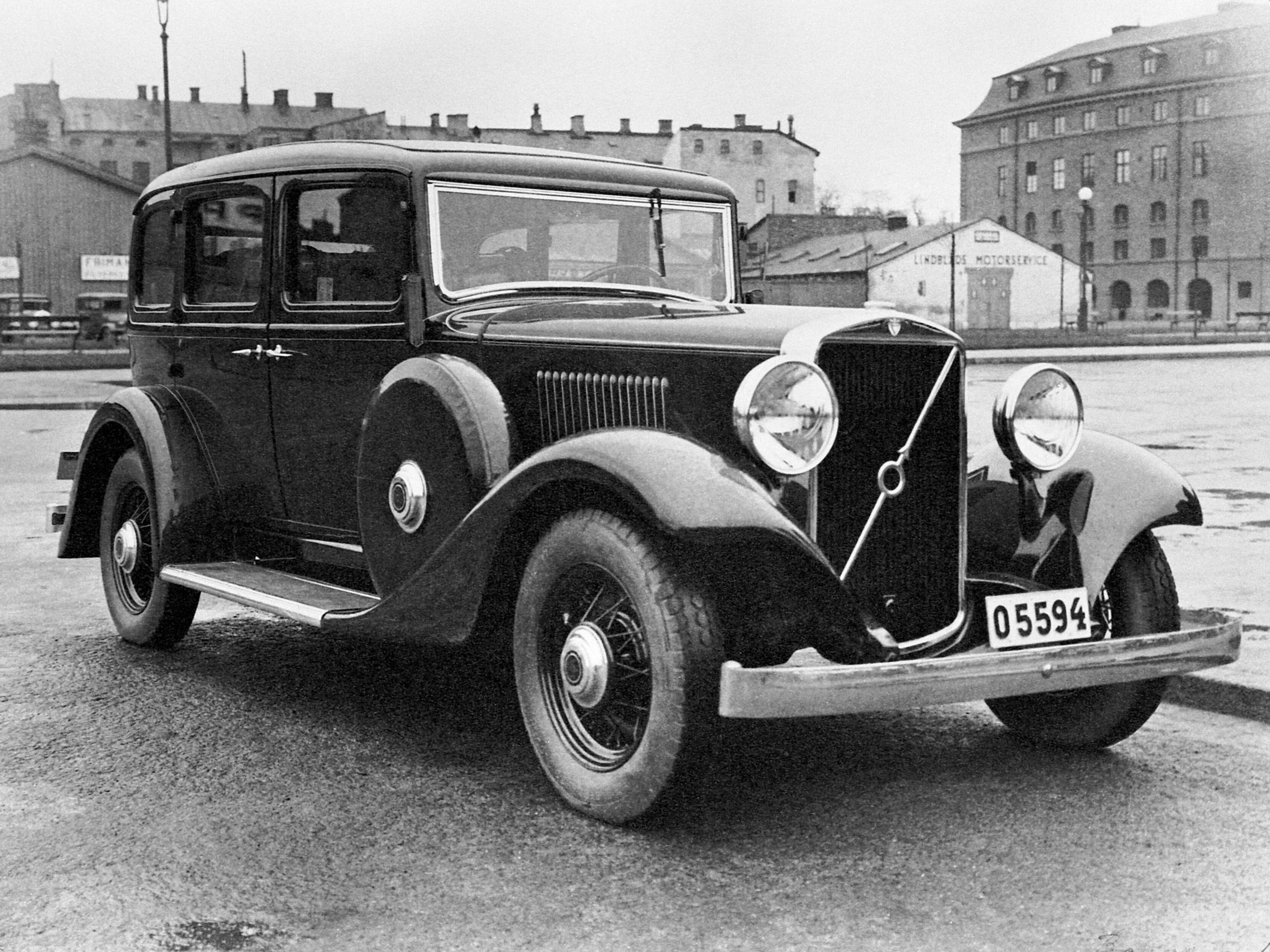
Volvo PV653-9. Comfortable and rugged car for everyday use.
The first six-cylinder Volvo car appeared as early as 1929 and developed versions of this car were to follow. In 1933, the PV653 (standard) and the PV654 (de luxe) were introduced. Comfortable, quiet and rugged cars for everyday use with reliable engines in traditional style.
The 654 de luxe version had a very plush interior, twin spare wheels and a reversing light, and it was available in several colours.
The PV655 was the chassis version, suitable for special bodies.
The launch in 1935 of the PV658 and PV659 changed the appearance of the car considerably. The radiator sloped slightly backwards and a grille was fitted in front of the radiator. The very special wheel hubcaps also contributed to the new character. A more powerful version of the 6-cylinder engine was another new feature. It had a displacement of 3.67 litres and developed 80-84 bhp.
Technical Specifications
Model: PV653-9
Variants: PV 653 Standard, PV 654 Luxury, PV 655 Chassis, variant of PV 653/654, PV 656 Chassis, PV 657 Standard, PV 658 Luxury, PV 659 with glass division
Produced: 1933 (PV653-5), 1935 (PV656-9), 1935 (PV653-5), 1937 (PV656-9)
Volume: 653 (PV653-5), 542 (PV656-9)
Body: Saloon Engine: 653-5: In-line, 6-cyl, side valves; 3,266 cc; 79.4x110 mm; 65 bhp at 3,200 rpm. 658-659: In-line 6-cyl, side valves; 3,670 cc; 84.14x110 mm; 8084 bhp at 3,300 rpm.
Transmission: 3-speed with free wheel, floor lever.
Brakes: Hydraulic on all wheels.
Dimensions: Wheelbase 2,950 or 3,550 mm.
Misc: 230 PV653s and 361 PV654s were built between 1933 and 1935
Volvo Cars has a long history of prioritizing safe family cars. Looking ahead, we aim to be a fully electric car company. Please join us on this journey and discover our range of fully electric cars, Plug-in hybrids, and family cars below.
Discover our fully electric cars
Explore fully electric carsDiscover our Plug-in hybrids
Explore Plug-in hybridsDiscover our family cars
Explore family carsEuropean models may be shown. Features, specifications, and equipment may have varied in Canada.